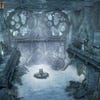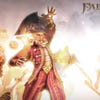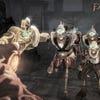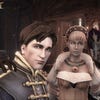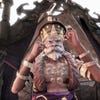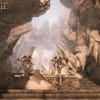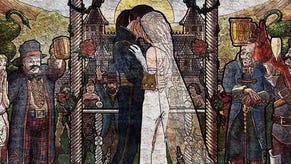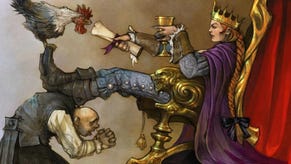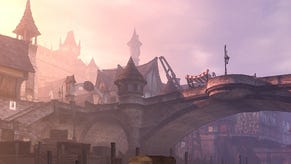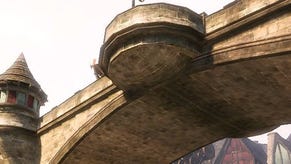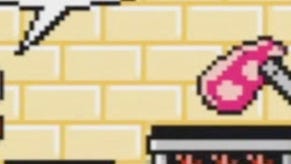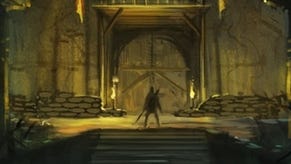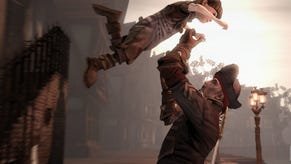Fable III
Dark days in Albion.
As heroes go, I don't feel much cop at the moment. In fact I feel absolutely ridiculous. This is because I am dressed as a giant chicken. It's hard to feel heroic when you have a bloated feathery stomach, a floppy red comb and knobbly yellow knees. The fact that I have a flintlock strapped to my back and a giant hammer in my hands doesn't help.
Naturally, there's a heroic reason I'm dressed this way: I'm on a quest. I've been charged with tracking down a group of renegade chickens by a farmer. "Chickens are crafty animals," he tells me solemnly. "They won't fall for any 'Come here, chickie chickie' nonsense! You have to trick 'em!" Hence the outfit.
Of course the main reason my character is in this absurd get-up is because it's funny, and funny has been an integral part of the Fable franchise since the beginning. Lionhead's fantasy RPGs have always boasted a whimsical sense of humour, making the game's enchanted world of Albion seem like a close companion to Terry Pratchett's Discworld.
It contains its darker elements, certainly, but encounters of the absurd, silly and often hilarious variety are never too far away. Anyone who's ever broken wind as part of a social exchange in a Fable game knows this.
The series' creative director, Peter Molyneux, planned it this way. With Fable III, he's even going so far as to toss in an achievement for players who don't mind keeping the renegade chickens as travelling companions on all their adventures.
"Those chickens, by the way," he says, "you can keep them with you right up until you become king. They're at your coronation if you do."
In Fable III, however, the franchise's trademark humour arguably plays more of an essential role than ever before. The game is a far darker affair than its predecessors, as is apparent right from Fable III's loading screen - it shows a flag of Albion pock-marked with bullet-holes while sombre music plays in the background. Laughs are in short supply for the people of Albion although Molyneux says this, ironically enough, helps the writers generate funny material for players to enjoy.
"This is what British comedy is best at doing; providing moments of hilarity in particularly dark situations," he says. "The darker the situation, the blacker the comedy can be and the blacker the comedy, the funnier it is."
Set around 50 or so years after the events in the last entry in the series, Fable III opens with Albion standing on the cusp of a revolution. Its ruler, the cold, callous King Logan, is hell-bent on dragging Albion into the industrial age. If that means hardship for its people, tough.
As the game begins the player is made aware, via the chatterings of NPCs, that there Logan's harsh attitude is already breeding discontent. It's not long before there are demonstrators outside the castle gates, protesting about the execution of a factory worker. The lush, light-hearted world of Albion from the first two Fable games has changed significantly, as Molyneux explains.
"I think of the first Fable and it seems like a cross between Sleepy Hollow and the world of King Arthur and the Knights of the Round Table," he says. "Fable II was more inspired by the age of Robin Hood; there aren't many heroes around, they're more rare and there are bigger and nastier things happening.


